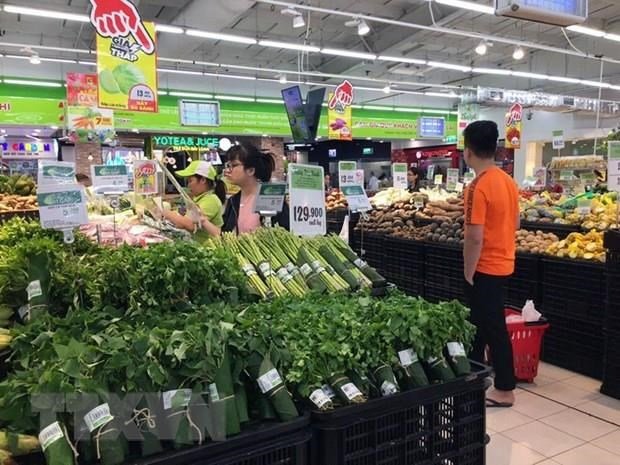
Trang chủ » Enhancing competitiveness for agricultural products
Enhancing competitiveness for agricultural products
Institute for Strategic Leadership Development and Research
Keyword
Author
admin
Share
Enhancing competitiveness for agricultural products
Viện Nghiên cứu Phát triển Lãnh đạo Chiến lược
Từ khóa
Ngày đăng
Tác giả
admin
Chia sẻ

Exporting agricultural produce can bring in good profits, therefore, it is necessary to prioritise the domestic market, said Minister of Agriculture and Rural Development Nguyen Xuan Cuong.
In addition, Cuong added, fluctuations in the world market are becoming more difficult to predict, so the domestic market should be the priority. This is not only a goal but the driving force for the development of sustainable agriculture.
Vietnam’s agricultural export market is increasingly influenced by many adverse factors. In response to difficulties, the Ministry of Agriculture and Rural Development (MARD) has actively promoted trade and consumption of domestic agricultural products, as well as studied and forecasted supply and demand to provide market information in a timely manner so that localities, businesses and people can adjust production suitably.
According to Nguyen Quoc Toan, Director of the MARD’s Agricultural Products Processing and Development Department, connecting production and consumption of agricultural products, especially high quality agricultural products, contributes to boosting the consumption of agricultural products in the country as well as solving output issues in increasingly difficult export conditions.
Developing agricultural production models towards linking businesses with farmers has helped farmers sell products for stable prices and low risk. Farmers are also invested by enterprises in agricultural seeds and materials for their production needs with low interest rates and more reliable quality.
Since then, farmers can assure production, implementation of technical measures and boldly invest in restructuring plants and animals, increasing productivity and output. In particular, it also motivates farmers to organise production according to the farm model, creating a large volume of commodity products, lowering production costs and increasing incomes.
For businesses, they are also proactive in the supply of agricultural products, quality control, stable prices and a clear commitment to quantity, quality, and time of product supply through affiliate contracts. Thus, businesses are assured to invest in cooperating with farmers for long-term business.
Until now, the form of cooperation and production linkage associated with the consumption of agricultural products by value chains has become popular. To make it easier to link businesses with farmers, many cooperatives have been established to bridge the gap.
By June 2019, the country had more than 15,500 agricultural cooperatives. The whole country has built and developed linking models with 1,254 chains, 1,452 products and 3,172 locations of controlled products under the chain of food safety.
In order to enhance information as well as to bring agricultural products directly to consumers, MARD also regularly organises fairs and exhibitions around the country; coordinates with associations to organise seminars to introduce, promote products and brands, solve difficulties for businesses, support knowledge and legal aid to build brands.
Thereby, it helps agricultural products of cooperatives to penetrate into the system of modern distribution channels, supermarkets, trade centres and supply a large number of domestic consumers.
By VNS/VNA



